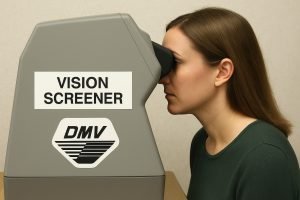Introduction
Before starting a car, every driver should take a quick assessment of their own physical and mental condition. Driving requires coordination, focus, and quick decision-making. If your body or mind isn’t prepared, you increase the risk of a crash.
Key Areas of Driver Fitness
-
Vision Check

-
Can you see clearly both near and far?
-
Do you have difficulty seeing at night or in bright sunlight?
-
Are your mirrors properly adjusted to cover blind spots?
-
Alertness & Fatigue
-
Did you get at least 7–8 hours of rest before driving?
-
Do you feel drowsy, lightheaded, or unfocused?
-
Have you been driving for more than 2 hours without a break?
-
Medication & Substances
-
Are you taking any medication with labels warning against driving?
-
Have you consumed alcohol or drugs in the past several hours?
-
Even “safe” prescriptions like antihistamines can cause drowsiness.
-
Physical Readiness
-
Do you feel strong enough to operate pedals and steering with control?
-
Do you have any injuries, pain, or conditions that limit movement?
-
Is your reaction time quick enough to respond to sudden hazards?
-
Mental & Emotional State
-
Are you calm and focused, or stressed and distracted?
-
Anger, anxiety, or emotional distress can impair judgment.
-
A safe driver stays patient and composed behind the wheel.
Self-Assessment Checklist (Before Driving)
-
I am well-rested and alert.
-
I am not under the influence of alcohol, drugs, or impairing medication.
-
My vision is clear, and my mirrors are properly adjusted.
-
I feel physically capable of steering, braking, and reacting quickly.
-
I am calm, focused, and free of distractions.
If you cannot confirm all these points, you should not drive until the issue is resolved.
Why It Matters
Even the best driving skills cannot overcome poor fitness to drive. Taking 30 seconds for a quick driver fitness assessment could prevent accidents, save lives, and protect your legal and financial future.
